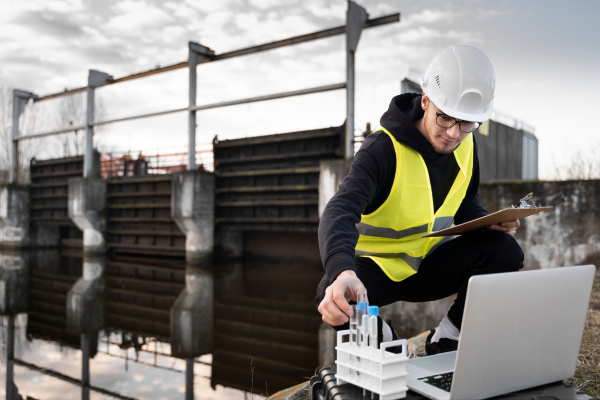Introduction
Water quality predictability is essential to guarantee the stability and security of our water supplies. The efficacy and accuracy of traditional water quality monitoring techniques are often inadequate to meet contemporary concerns. But our ability to accurately and efficiently predict water quality has advanced significantly with the introduction of machine learning technologies.
Table of Contents
A Complete Guide to Predicting Water Quality Using Machine Learning Algorithms

Because machine learning algorithms analyze massive amounts of data collected from multiple sources, including sensors, satellites, and environmental monitoring stations, they provide a holistic method for forecasting water quality. With the help of these algorithms, which are able to recognize patterns and correlations in the data, users can accurately predict water quality-related metrics including pollutant concentrations, dissolved oxygen, and pH levels.
Using machine learning to accurately predict water quality
The ability of machine learning to generate accurate forecasts is one of the main benefits of using it to predict water quality. With a high level of accuracy, machine learning models can predict future water quality conditions by continuously analyzing real-time data and integrating past trends. This makes it possible for water management officials to proactively address potential problems before they become more serious.
Machine Learning Techniques for Efficient Water Quality Forecasting
Water quality metrics have been effectively predicted by the application of machine learning techniques such as neural networks, decision trees, random forests and support vector machines. These methods work well for the dynamic nature of water quality forecasting because they can handle large, complex datasets and nonlinear interactions.
How accurate estimates of water quality are increased by machine learning
Over time, machine learning algorithms can increase their accuracy by continuously learning from and adapting to new data. Even with changing climate conditions, these algorithms produce very accurate estimates of water quality indicators using processing power and sophisticated statistical techniques.
The power of machine learning in water quality forecasting
Machine learning’s ability to quickly absorb and analyze large amounts of data is what gives it the ability to make predictions for water quality. This makes it possible for academics and decision makers to protect water supplies by gaining an understanding of complex environmental processes.
Using Machine Learning to Monitor Water Quality Effectively
Automating data collection, processing, and interpretation is one way machine learning can improve water quality monitoring initiatives. It allows water quality metrics of multiple locations to be monitored simultaneously in real time, facilitating quick response in case of pollution or other risks.
Impact of Machine Learning Algorithms on Water Quality Control
By detecting sources of pollution, streamlining treatment processes, and offering early warning systems for potential contamination events, machine learning algorithms can be very helpful in controlling water quality. Officials can enhance water quality control methods and protect public health by using machine learning in water management initiatives.
A guide to improving machine learning predictions of water quality
If one is to enhance water quality prediction using machine learning techniques, it is important to continuously develop and optimize models based on fresh information and user input. Increasing predictive accuracy may require creating combination models, adding more variables, or fine-tuning model parameters.
Methods to predict water quality using machine learning
Machine learning can be used to predict water quality in many ways, such as time series forecasting, clustering strategies, classification algorithms, and regression analysis. Each technique has advantages and disadvantages, and the best strategy will depend on the details of the data as well as the goals of the forecasting assignment.
Conclusion
Machine learning algorithms provide a robust and flexible method to accurately and efficiently predict water quality. These algorithms allow us to make well-informed decisions to protect and maintain our precious water resources using sophisticated computational approaches and vast amounts of data. They also provide us with important insights into the complex dynamics of water systems.
- You might be interested in reading these posts as well
- Machine learning algorithms for crop yield prediction
- Quantum machine learning algorithms for drug discovery applications
- Machine learning algorithms in quantum computing a survey
- Machine learning algorithms for damage detection kernel-based approaches
FAQs
By evaluating large datasets, finding patterns, and generating accurate predictions based on past trends and current data, machine learning algorithms enhance water quality prediction.
Neural networks, support vector machines, decision trees, and random forests are common machine learning methods for predicting water quality.
By automating data collection, processing, and interpretation, machine learning algorithms can improve water quality monitoring efforts by facilitating real-time monitoring and rapid response in case of pollution or other risks.
Using machine learning to predict water quality poses several difficulties, including data quality issues, model complexity, and the need for ongoing model optimization and modification.